Ganesh Rakh: The doctor who delivers India's girls for free
- Published
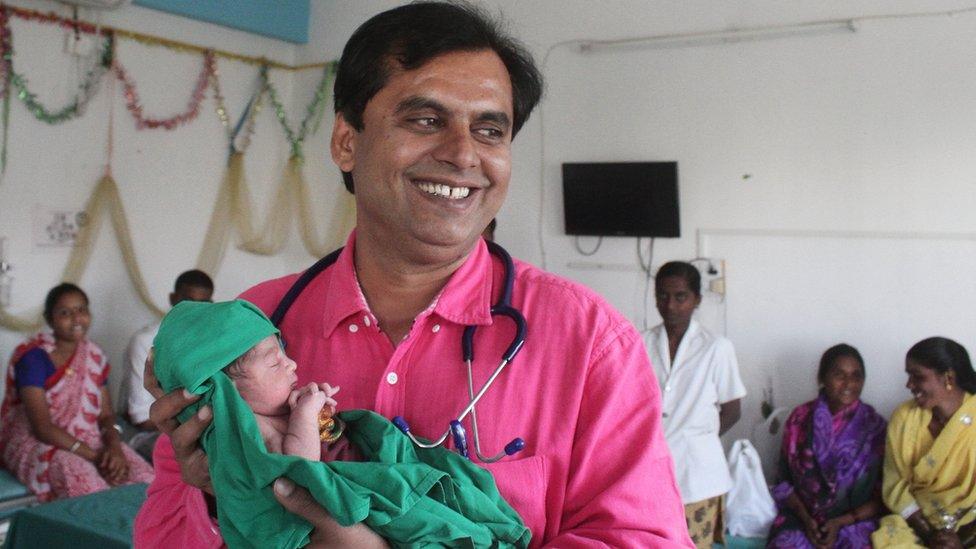
Dr Ganesh Rakh says the 2011 census figures made him realise how skewed India's gender ratio was
An Indian doctor is on a unique mission to save the female child - he waives his fee if a girl is born in his hospital.
Dr Ganesh Rakh calls it his "tiny contribution" to improving the lot of the girl child in a country where a traditional preference for boys and an easy availability of antenatal sex screening has resulted in a skewed gender ratio.
In 1961, there were 976 girls for every 1,000 boys under the age of seven. According to the latest census figures released in 2011, that figure has dropped to a dismal 914.
Dr Rakh, who started a small hospital in the western Indian city of Pune in 2007, says that whenever a pregnant woman came for her delivery, all her relatives would come with the hope that the baby would be a boy.
"The biggest challenge for a doctor is to tell relatives that a patient has died. For me, it was equally difficult to tell families that they'd had a daughter," he says.

Unsung Indians
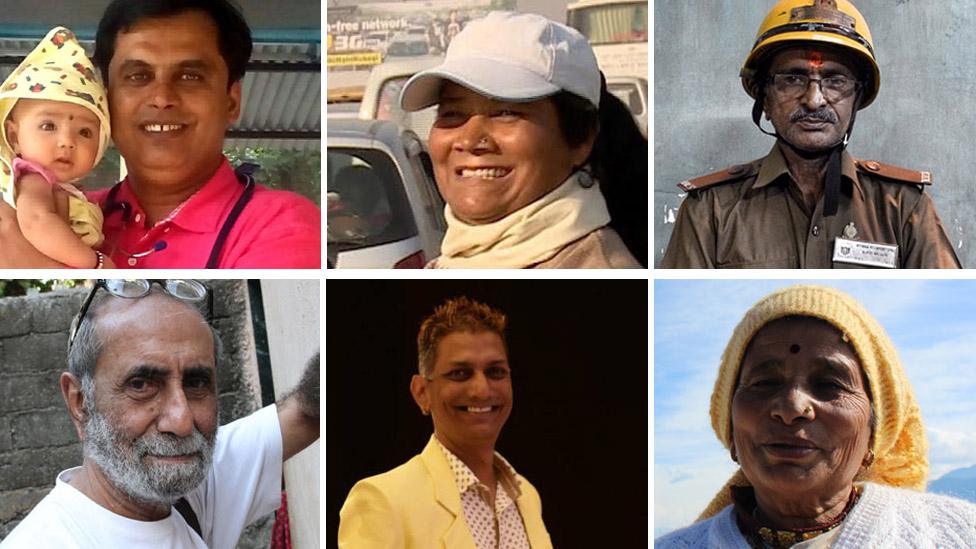
This is the first article in a BBC series Unsung Indians, profiling people who are working to improve the lives of others.

"They would celebrate and distribute sweets if a male child was born, but if a girl was born, the relatives would leave the hospital, the mother would cry, and the families would ask for a discount. They would be so disappointed.
"Many told me that they had taken treatment to ensure the birth of a male child. I was surprised, as I wasn't aware of any such treatment. But they spoke about consulting a holy man, or would talk of putting some medicine into the mother's nostril to ensure she delivered a boy."
The 2011 census figures were an eye-opener for Dr Rakh, who dotes upon his nine-year-old daughter, his only child. They made him realise how grim the situation really was.
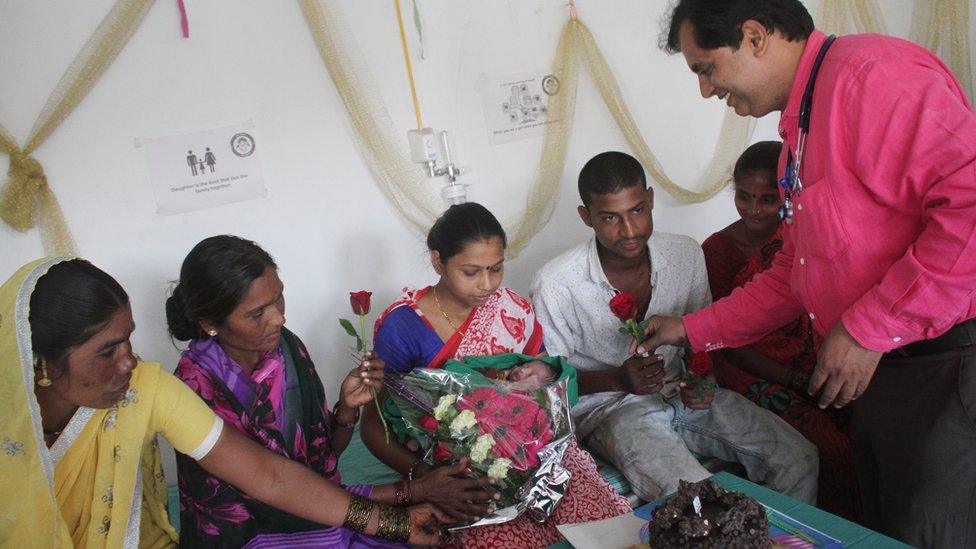
The hospital celebrates each time a baby girl is born in the hospital
Campaigners likened female foeticide to genocide, while then prime minister Manmohan Singh described it as a "national shame" and called for a "crusade" to save India's girls.
On 3 January 2012, Dr Rakh began his own "crusade" - by launching the Mulgi Vachva Abhiyan (which translates from Marathi into "campaign to save the girl child").
"I decided I would not charge any fee if a girl was born. Also, since a son's birth was celebrated by the family, we decided we [at the hospital] would celebrate a daughter's birth."
In the four years since he launched his campaign, 464 girls have been born in his hospital and he has not charged the parents any fee.
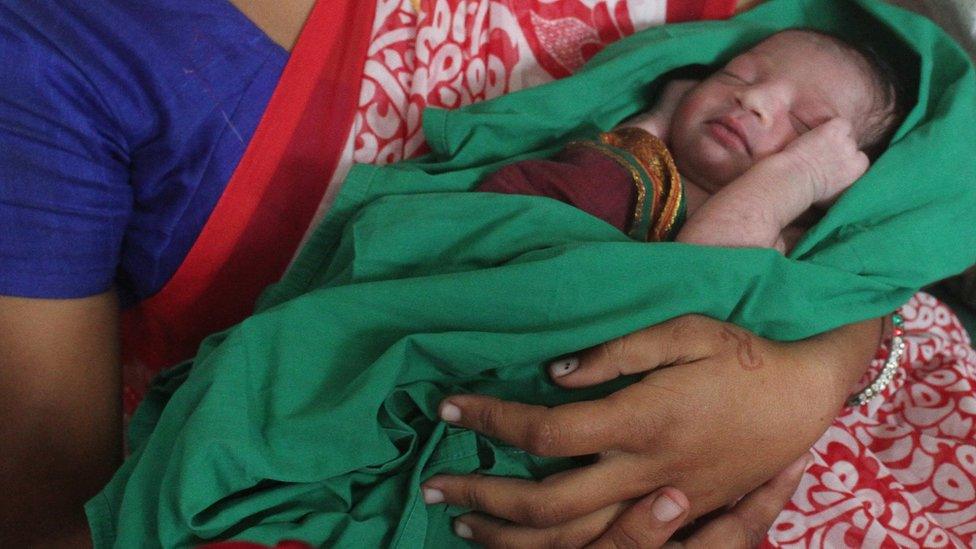
The hospital staff have named the one-day old baby Angel
On the day I visited him, the hospital was celebrating the birth of Nisha and Rahul Khalse's first baby - a girl.
The parents, who had come from a village 50km (31 miles) from Pune, were yet to name her, but the hospital staff decided to call the one-day-old Angel.
Dr Rakh and his colleagues presented flowers to the parents, candles were lit, and a chocolate cake brought in. The staff and family gathered around, everyone clapped and sang "happy birthday Dear Angel".
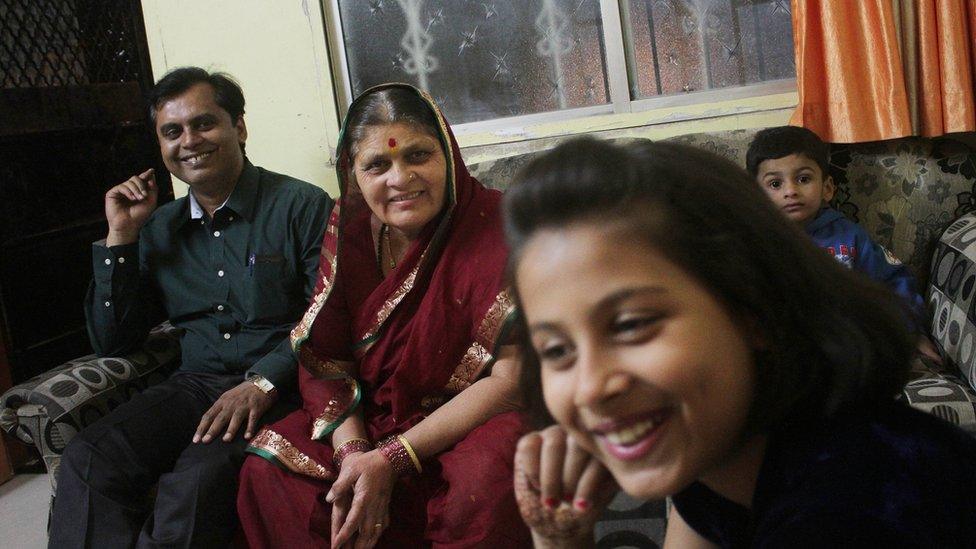
Dr Rakh wanted to be a wrestler but was discouraged by his mother
"There are hospitals closer home, but we came here because Dr Rakh doesn't ask for money," says Rahul Khalse who works as a day labourer on construction sites.
"He's a good man," says his mother, Alka Shahji Khalse.
Dr Rakh says he didn't really plan on becoming a doctor - he actually wanted to be a wrestler.
"But my mother discouraged me - she said you'll overeat and finish everyone's food."
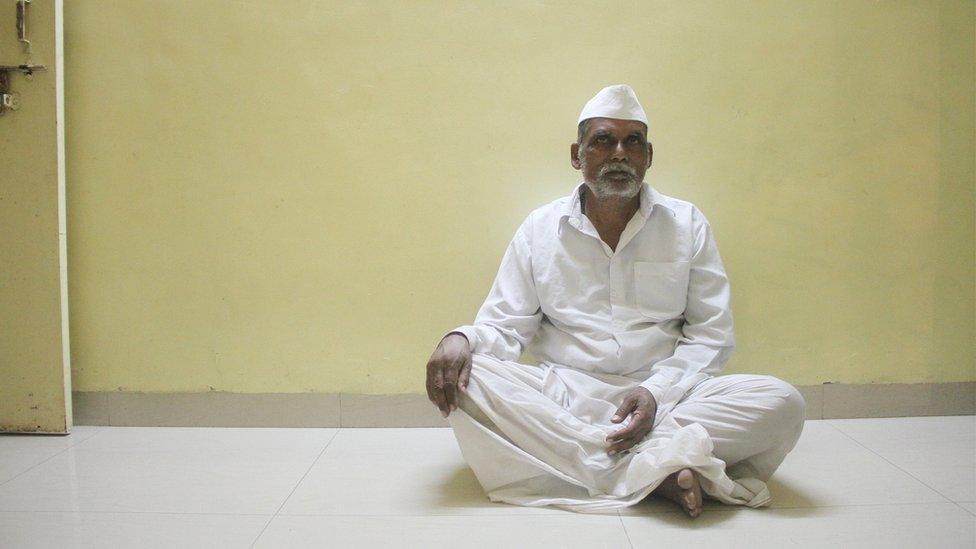
Dr Rakh's father Adinath Vithal Rakh supported his son's decision to waive the fee if a girl child was born in his hospital
Her concern was genuine - his father worked as a porter in the grain market, carrying sacks on his back, while his mother cleaned dishes in other people's homes. The family's meagre income was barely enough to feed Dr Rakh and his two brothers.
So he concentrated on becoming a doctor.
It was not an easy decision to waive his fee for the delivery of baby girls, and he was predictably opposed by his wife and brothers.
"We are economically not well off," his wife Trupti Rakh said. "So when he told me about his decision, I was worried as to how I would run the house."
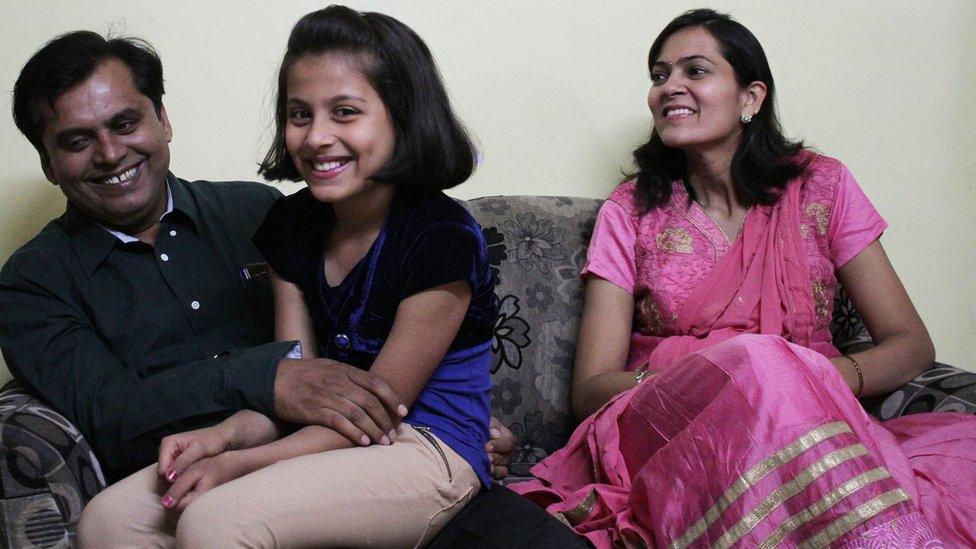
Trupti Rakh (right) says she was initially worried about her husband's decision, but is "very proud" of him now
But his father Adinath Vithal Rakh supported his decision whole-heartedly.
"He told me to continue with the good work. He said he would go back to work as a porter if needed," Dr Rakh says.
Today, his efforts have begun to bear fruit - ministers and government officials are appreciating his work and Bollywood superstar Amitabh Bachchan has described him as a "real hero".
"I started a small thing. I didn't know it would be received like this," he says, adding, "but sometimes small things impact minds in a big way".
Over the past few months, he has contacted doctors around the country, asking them to do at least one free delivery and, he says, many have pledged support.
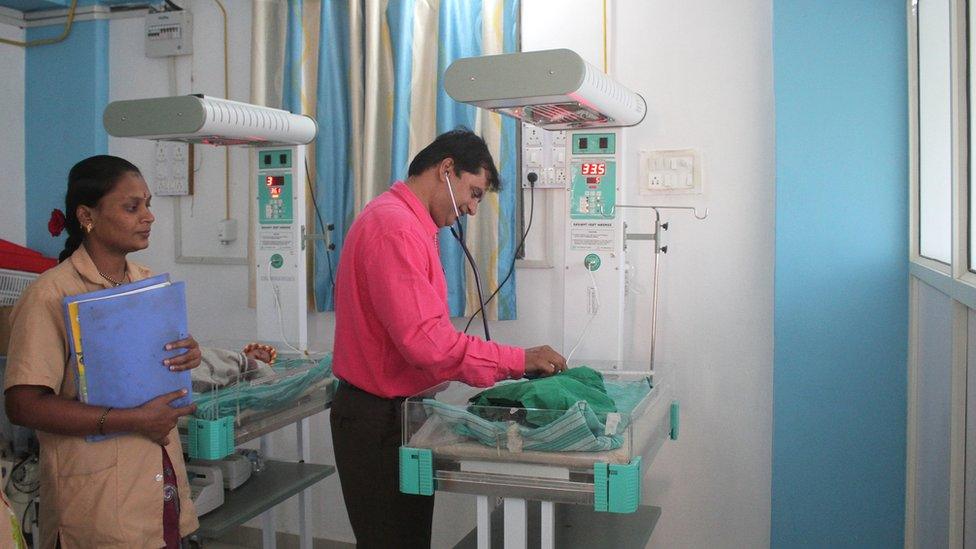
"I want to change attitudes," says Dr Rakh
He has also been organising marches through Pune's streets to convince people that a daughter is as precious as a son.
"I want to change attitudes - of people, doctors. The day people start celebrating a daughter's birth, I'll start charging my fee again. Otherwise, how will I run my hospital?" he asks.